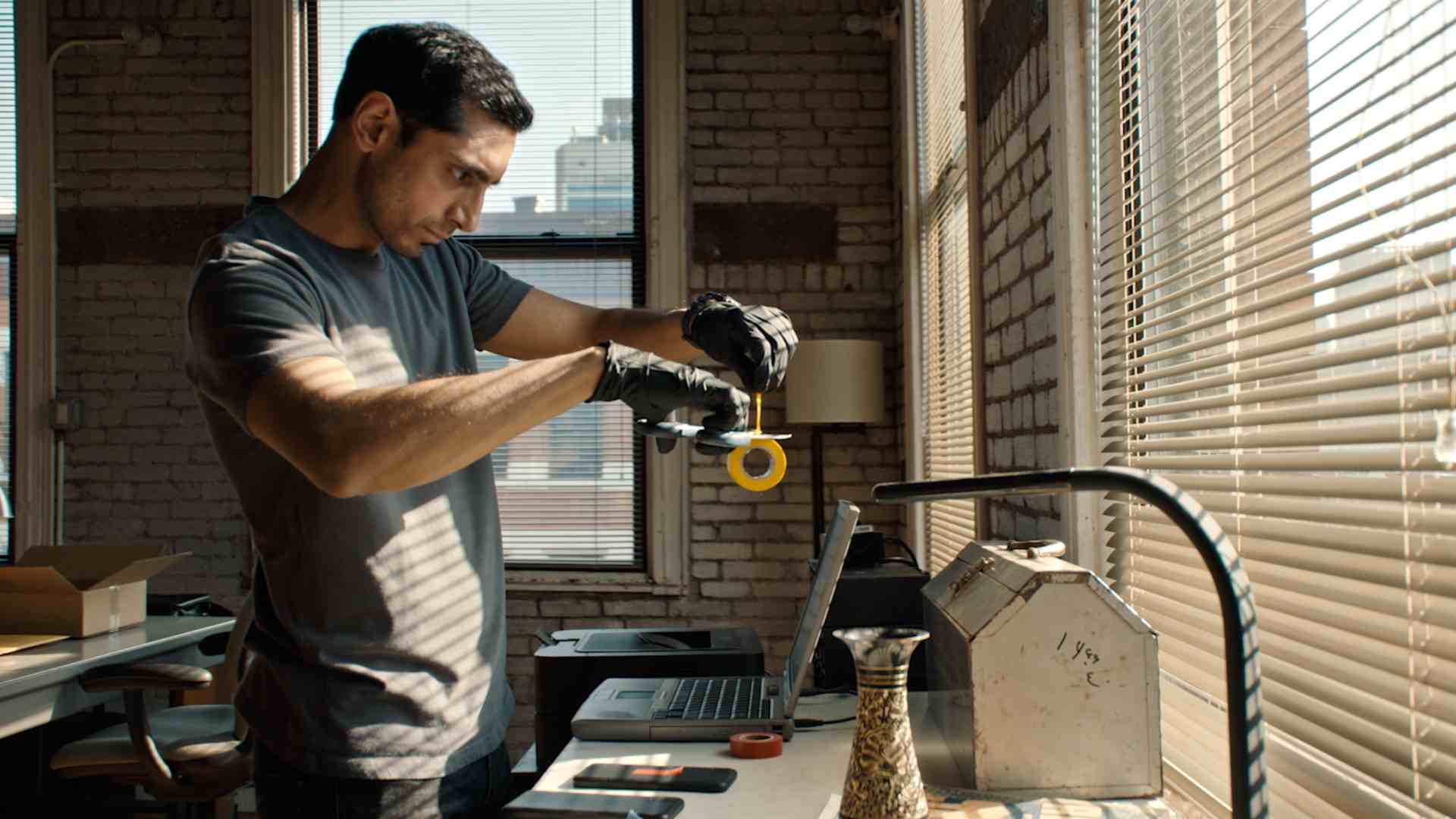Sharp but shallow, Relay gives Riz Ahmed his own Michael Clayton-style thriller
David Mackenzie is in journeyman mode conducting a thin movie about corrupt companies and shadowy fixers.
Photo: Bleecker Street
David Mackenzie spent the first half of his filmmaking career making uneasy and compelling British dramas filled with off-kilter psychology and actors like Ewan McGregor or Jamie Bell skulking around Scottish canals and rooftops. After knighting Jack O’Connell as a leading man of unique intensity in the prison drama Starred Up, Mackenzie’s projects have shown an interest in reflecting the fraught construction of modern America through unambiguous genre stories. If one conveniently ignores Outlaw King, his unfortunate Robert The Bruce biopic for Netflix (nothing more Hollywood than a Californian thinking they can do a Scottish accent), there’s a clear throughline between the Texan heist drama Hell Or High Water, Mackenzie’s work on the LDS true-crime series Under The Banner Of Heaven, and his new tri-state paranoia thriller Relay.
In both this Michael Clayton-inflected film and his Oscar-nominated Western, Mackenzie applies a workmanlike craft to stories that are too sensationalized to be mistaken for serious drama, yet build suspense on top of real social tension, a disillusionment with power, and a desire to protect oneself (and maybe others) with noble criminality and fine-print loopholes. But where Hell or High Water was finely engineered, a void of personality makes Relay simply mechanical.
Relay stars Riz Ahmed as Ash, a broker who anonymously protects vulnerable people who possess incriminating evidence of corporate malfeasance and secures big payoffs from companies eager to keep their crimes from public view. In the opening scene, the mild-mannered Hoffman (Matthew Maher) goes into a handoff with tetchy executive (Victor Garber) in a nondescript, noir-friendly diner. Unbeknownst to either party, Ash watches from the other side of the restaurant, dressed as a construction worker. It’s not the only municipal worker disguise that Ash dons during Relay, a costuming choice that bluntly mirrors his thematically-loaded preferred channel of communication: the Tri-State Relay Service, a telecommunication service where a random operator relays the caller’s typed messages to the person they’ve dialed.
The relay service is primarily intended for people who are deaf or hard of hearing, but operates here as a gold mine for screenwriter Justin Piasecki’s paranoid thriller. Throughout the film, different relay service employees blankly read off Ash’s messages to his new client, Sarah Grant (Lily James), who stole a damning report from her biotech company. Crucially, Ash’s clients have no whistleblower ambitions—they employ him to make the heat go away, preferably with a chunk of cash, without making front-page news or being summoned to high-profile depositions.
 Keep scrolling for more great stories.
Keep scrolling for more great stories.
